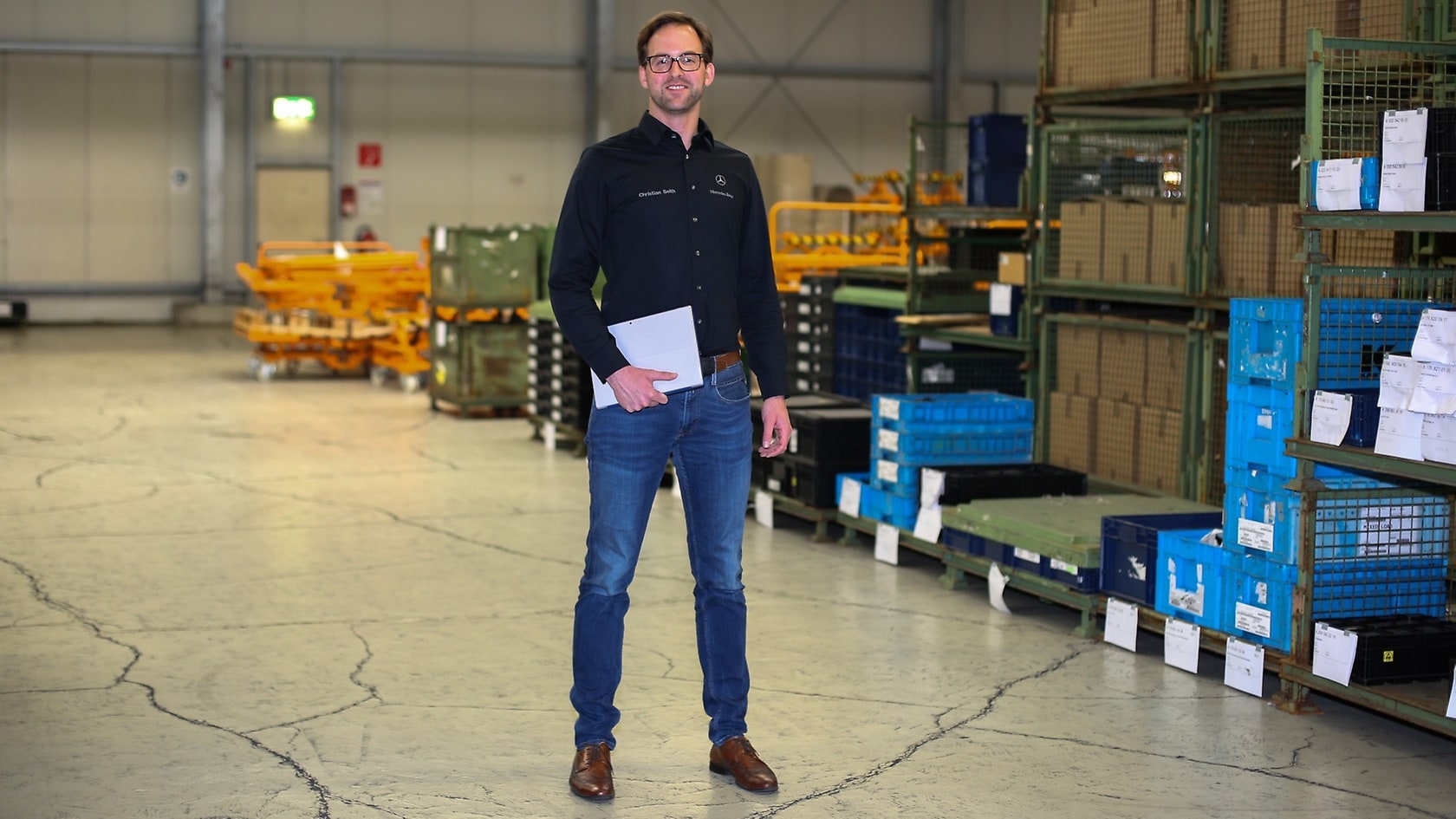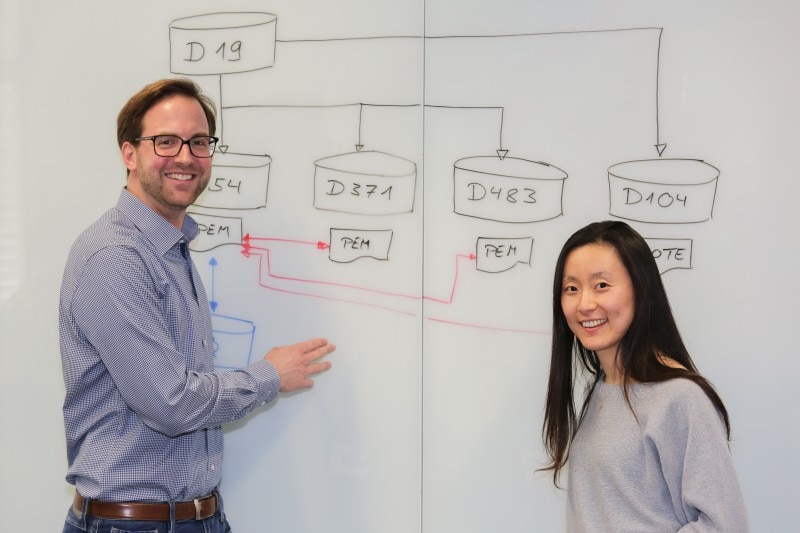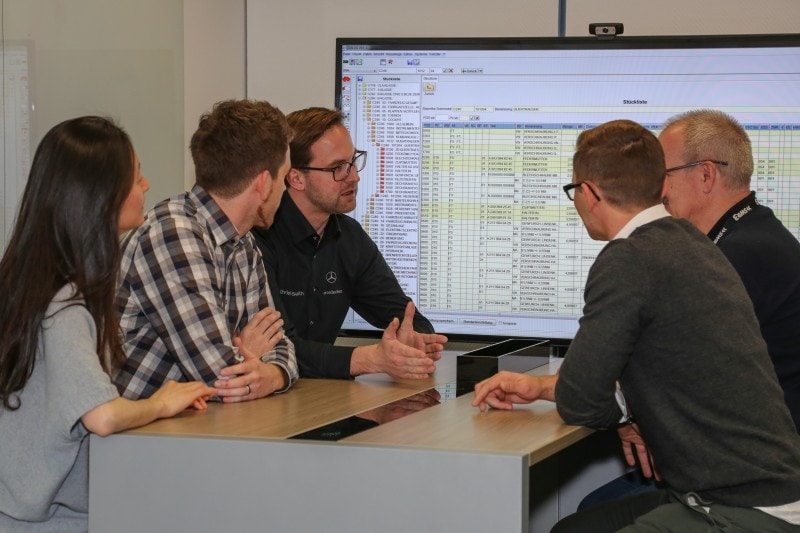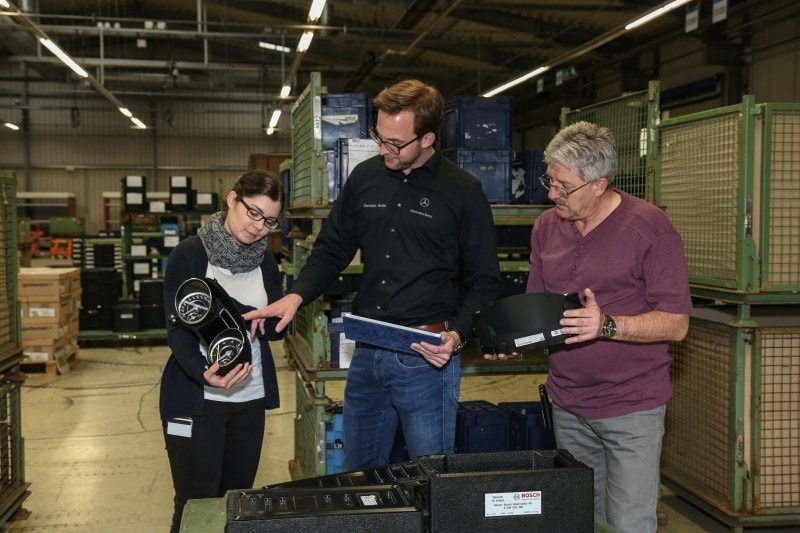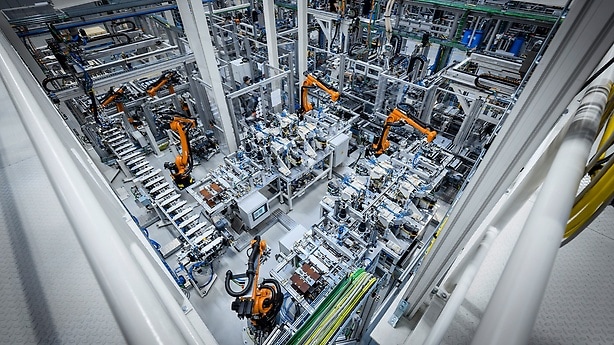What was your previous experience at Mercedes-Benz – starting from your first day in the company until today?
I started my dual study program in 2004 and completed it in September 2007. As part of the practical training, I had the opportunity, along with my fellow students, to work in different departments at the Rastatt plant on three-month rotations and get involved in interesting projects. I particularly enjoyed the varied work environment in logistics and was looking to specifically work in this area once I had completed my degree.
Everything worked out as I had hoped and I started work as a production engineer looking after logistics in chassis assembly. Three years later, I assumed the role of assistant to the logistics manager at Rastatt, before taking on my first team leader role in 2013 at the Mannheim plant. Again, I stayed true to logistics and worked with my team on planning the internal and external processes for engine production.
After a very exciting period in Mannheim, I have now returned to compact cars and work on ramp-up management and change management, a completely new area for me. I was particularly drawn to the challenge of learning about an entirely different area of logistics.
Please tell us a little more about your tasks and your team.
It may initially sound as though my team performs a wide variety of tasks. However, all the work is related to the ramp-up of new products, new features and product improvements in our production network.
The first task involves the planning of production trials and ramp-up scenarios. We are not only looking at the Rastatt plant, but also constantly monitoring all the other sites where our compact vehicles are manufactured. Another part of the team plans the processes for change management. This covers all the process steps that are required to put parts into production that have been changed and optimized by Development.
We also ensure that parts are available in the phases leading up to series production, which is done in collaboration with our colleagues in Development, Procurement and Quality. This also includes the physical parts supply via our ramp-up warehouse.
Last but not least, we coordinate partnership projects in the compact segment. This means that we are the point of contact for production and logistics.
